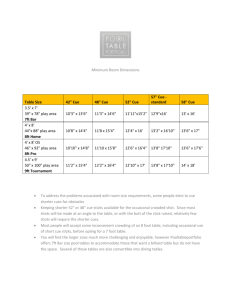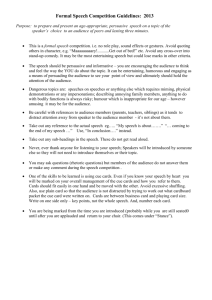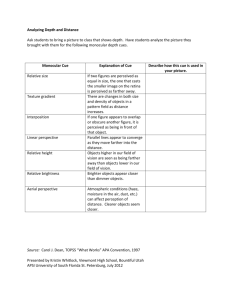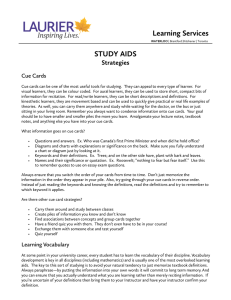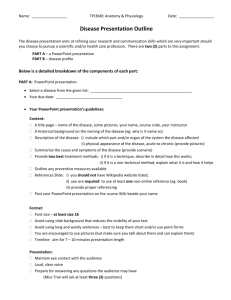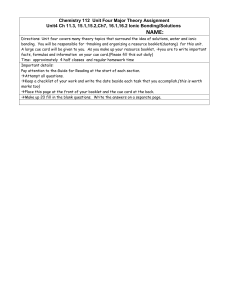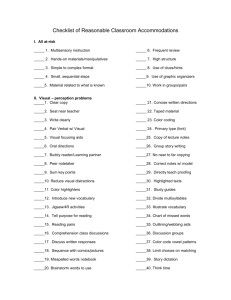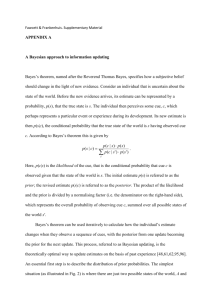Memorizing Lines Theater Production – Ms. Ask Anyone who has
advertisement
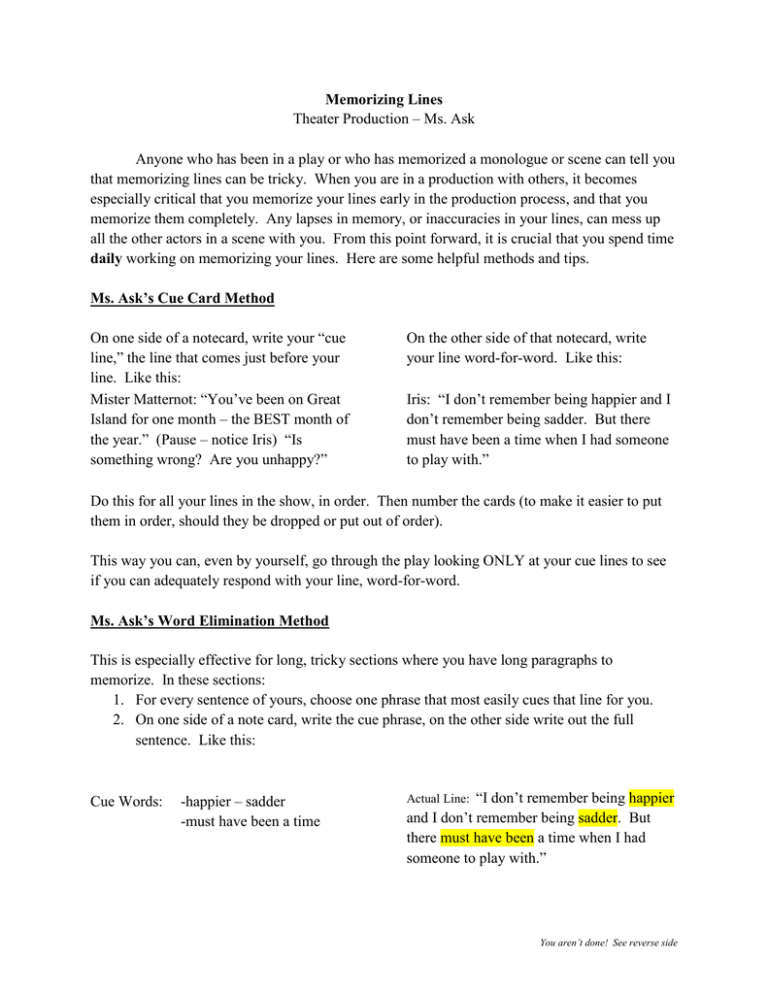
Memorizing Lines Theater Production – Ms. Ask Anyone who has been in a play or who has memorized a monologue or scene can tell you that memorizing lines can be tricky. When you are in a production with others, it becomes especially critical that you memorize your lines early in the production process, and that you memorize them completely. Any lapses in memory, or inaccuracies in your lines, can mess up all the other actors in a scene with you. From this point forward, it is crucial that you spend time daily working on memorizing your lines. Here are some helpful methods and tips. Ms. Ask’s Cue Card Method On one side of a notecard, write your “cue line,” the line that comes just before your line. Like this: Mister Matternot: “You’ve been on Great Island for one month – the BEST month of the year.” (Pause – notice Iris) “Is something wrong? Are you unhappy?” On the other side of that notecard, write your line word-for-word. Like this: Iris: “I don’t remember being happier and I don’t remember being sadder. But there must have been a time when I had someone to play with.” Do this for all your lines in the show, in order. Then number the cards (to make it easier to put them in order, should they be dropped or put out of order). This way you can, even by yourself, go through the play looking ONLY at your cue lines to see if you can adequately respond with your line, word-for-word. Ms. Ask’s Word Elimination Method This is especially effective for long, tricky sections where you have long paragraphs to memorize. In these sections: 1. For every sentence of yours, choose one phrase that most easily cues that line for you. 2. On one side of a note card, write the cue phrase, on the other side write out the full sentence. Like this: Cue Words: -happier – sadder -must have been a time “I don’t remember being happier and I don’t remember being sadder. But there must have been a time when I had someone to play with.” Actual Line: You aren’t done! See reverse side This way, you can easily practice tricky sections or monologues from your part on your own. By looking at your cue phrase, you can test yourself to see if you can recite that entire sentence perfectly. As you continue doing this, you can boil down your cue phrases into single words that trigger your memory of that line. Eventually, you can wean yourself off these cue cards, and just recite these long sections from memory. Line Memorization Tips: Create cue cards to practice from – (see two methods above) Read your lines out loud Get a partner or friend to help quiz you on your lines If you make a mistake in the wording of the line, repeat the line three times accurately before you move on Try to make weird little connections between the cue line and the line you say. I think of making connections between the important words. For example, in Moon Over Buffalo, there’s a line that George says that is my cue line. He says, “I cannot believe, to this day, that that is your mother. Here you are the greatest stage actress in a generation and you were spawned by a troll?” To which I am supposed to reply, “George, cut it out.” Now, my line is not particularly memorable. But, it has the word “cut” in it, and for me, the word cut is the most distinctive part of that line. So, when I hear George say “troll,” I think about cutting a troll doll’s hair with scissors. This is bizarre, yes. But that bizarre connection between the lines is now stuck in my head, and I think of it every time I do that line, and now I don’t forget that line. Run through your lines once a day. Even after you think you are memorized, it takes regular practice re-visiting those lines for them to stay accurate in your memory.

